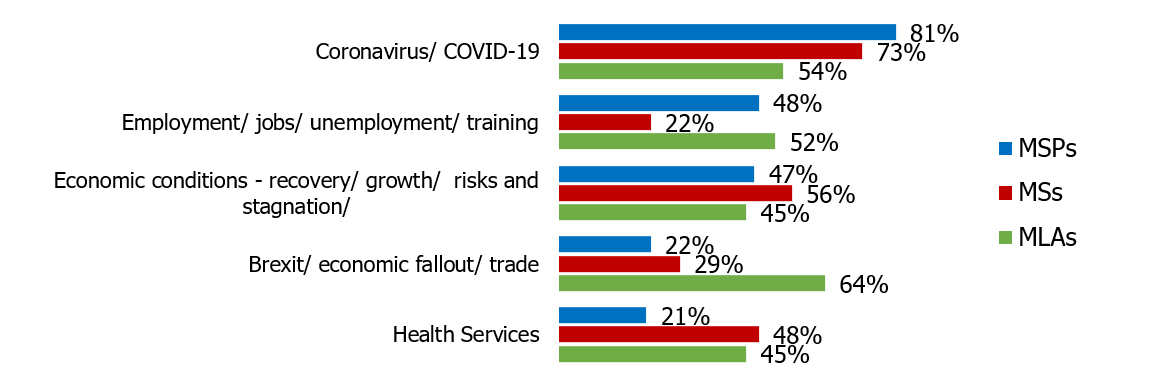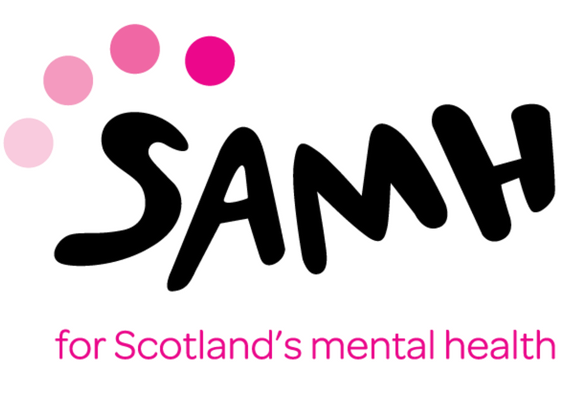In May of this year, voters in Scotland and Wales went to the polls for the 6th time since devolution in 1999. Of course, the 2021 elections were a little different having been held amidst a global pandemic that has reshaped and reconfigured the agenda for political parties and charities across the UK. However, with the vaccine roll-out going strongly and society getting back to normal, recovery is now very much on the agenda, giving charities the space to think ahead to medium/long term for policy. As such, these elections presented us with an ideal opportunity to see how charities are placing themselves as key drivers in the policy debate as we move towards recovery.
As we’ve shown previously, charities are positively perceived in the devolved nations and are integral components of the policy process. Such sentiments continue to be held amongst politicians in the devolved nations. In Scotland alone, the sector became the focus of the recent campaign trail as all five major party leaders talked up the importance of charities before a virtual hustings session on behalf of SCVO. Of particular note was First Minister Nicola Sturgeon, who spoke about the need to push the sector towards a ‘parity of esteem’ with the government, judging it as better placed than the statutory sector in terms of identifying service provision and decision making.
Obviously, high-profile politicians putting charities at the heart of the recovery is great, but we want to see what politicians prioritise in the coming months and years. Being aware of these priorities will allow charities in the devolved nations to tailor their messaging to politicians, so to achieve as big an impact as possible.
When we surveyed politicians in Scotland, Wales and Northern Ireland between September 2020 and January 21, their priorities for the coming months were very clear. COVID dominated the agenda but on top of that, related concerns such as economic recovery and employment also featured prominently. 8 in 10 MSPs in Holyrood cited the pandemic as a key issue to deal with in the coming months compared to 73% of MSs in Cardiff and 54% of MLAs in Stormont. Understandably, the top issue cited by MLAs regards the continued fall out over Brexit and the very difficult circumstances Northern Ireland finds itself in as a result of this.
Figure 1: Priorities of MSPs, MSs & MLAs

“Which issues do you think will be at the top of your political agenda over the next 12 months? Please list up to four issues.”
Source: Celtic Charity Parliamentary Monitor, Sep 20-Jan 2021, nfpSynergy | Base: 37 MSPs, 24 MSs, 34 MLAs
So how are charities framing a narrative that will suit the COVID recovery agenda of politicians in the devolved nations? This year’s manifestos in Scotland and Wales have provided an excellent opportunity to look into the policy ambitions of charities for the next five years. A key theme across many manifestos is the sense of urgency that charities have communicated, particularly in highlighting how COVID has exposed pre-existing issues specific to the devolved nations and the long-term impacts of the pandemic moving forward. One of these charities is British Heart Foundation Scotland.

In their 2021 Scottish Parliament election manifesto, BHF effectively constructed a widespread narrative that they feel will strike a chord with MSPs moving forward. It highlighted the increased risk of COVID to those with heart disease, but also emphasised how these risks will add further pressure to long standing health issues in the country. With heart disease being Scotland’s biggest killer (accounting for over 11% of all deaths in 2018) the charity is now calling on the Scottish Government to deliver a number of actions. This includes the implementation of a community led approach that will help detect and diagnose heart issues across the country.
It’s important to note as well that British Heart Foundation are an excellent example of a UK wide charity that has also been able to focus and tailor their campaign strategies to nation/local specific matters often with great success. For charities working across the UK, capturing the attention of politicians within the devolved nations is as much about this fact as any. This is not lost on Scottish politicians either, with one MSP in our research praising British Heart Foundation for their ‘Impressive campaign ideas with a local focus’.

Another example in Scotland has been that from SAMH (Scottish Association for Mental Health) who have used the pandemic’s mental health crisis to highlight the need to improve mental health services in Scotland and bring it up to levels seen in England and Northern Ireland. SAMH’s work in the sector over the past year or so has certainly been recognised by MSPs. For instance, a Conservative MSP told us how impressed they were with the organisation’s ‘support during the pandemic to their clients and supporters’. Looking ahead, one of their goals is to push the Scottish Government in bringing about a 50% increase in Scotland’s psychology workforce by the end of the new parliament. Similar to British Heart Foundation, SAMH have used COVID to shine a light on a pre-existing issue; in this case, the urgent pressures COVID has placed on already poor service provision in Scotland. Our own research had one SNP MP praising them for their ‘commitment to services and those that they provide within my constituency’.

There are some charities that work on causes that are not ‘directly’ linked to COVID-19. But we would argue they can make just as compelling a case for building a better society after the reset opportunity that the pandemic have given us. In Wales, Women’s Equality Network Cymru has framed the recovery in a way that seeks to rebuild an economy and society that can better serve women in society. With lockdowns resulting in an increase in domestic abuse, they have sought to push the Welsh Government further on existing legislation (the Women, Domestic Abuse and Sexual Violence Act (Wales) 2015) noting how future funding should reflect such an increase. Most importantly, the organisation has tapped into the ‘build back better’ theme calling on government to move faster on rebuilding an economy/society that can properly achieve gender equality.
At the start of new parliamentary terms in Scotland and Wales (and edging towards a new one in Northern Ireland) it is a vital time for charities to influence and dictate how the devolved nations navigate their way out of COVID. As we see above, politicians in the devolved parliaments are still very much focused on dealing with the pandemic and the recovery that will follow. As such it will be important to convey a sense of urgency by tapping into pre-existing issues and framing communications in terms of pandemic recovery (And for those charities that work across the UK, adapting their messaging to suit the needs of the devolved nations is all important too.) In the short and long term, this will be vital as politicians in the devolved nations set out their agenda for the next 5 years.

